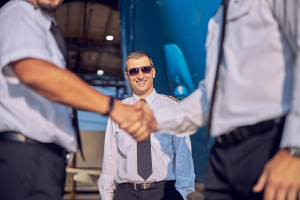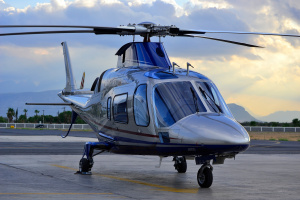Why should you consider to become a pilot right now?
02/04/23 17:42 by Markus + ChatGptAs pilot recruiters we can say that we have a good overview about the most recent figures of pilots demand. Being at Pilot Expo 2023 in Berlin in February 2023 we met a lot of airlines with a dramatic shortage in pilots. The future for pilots looks bright. Especially fast growing ACMI companies like SmartLynx Airlines Ltd, Heston Airlines or Xfly are present with high demand on future pilots. As well Asian carries are growing fast and American Airlines CEO Robert Isom has just proposed a deal to American Airlines Pilots worth a 40% pay rise. This deal will see a widebody captain at the top of the payscales, making a basic salary of $590,000 annually and a narrowbody captain making $475,000 a year. Ofcourse the next crisis will come, but at the moment, when asked about their career aspirations, young people can be advised: become a pilot.
This article deals with the skill one should have to become a pilot. Being a pilot requires a unique set of skills and abilities that are necessary for the safe and efficient operation of an aircraft. These skills range from technical abilities to interpersonal skills, and every pilot must have a comprehensive understanding of their responsibilities and the importance of their role.
Technical Skills of a pilot
One of the most critical skills a pilot must have is technical proficiency. Pilots must know how to operate and maintain the aircraft they are flying. This involves a thorough understanding of the aircraft's systems, including the engines, avionics, and navigation equipment. They must also know how to read and interpret weather reports, charts, and maps to plan their flights accurately.
In addition, pilots must be able to communicate effectively with air traffic control (ATC) to receive instructions and updates on weather conditions and other relevant information. They must also be able to communicate with their co-pilot and other members of their flight crew to ensure a safe and efficient flight.
Situational Awareness
Pilots must also have excellent situational awareness. This means they are aware of their surroundings and can anticipate potential problems before they arise. Situational awareness requires constant vigilance and a thorough understanding of the aircraft's capabilities and limitations. This skill is critical in ensuring the safety of the flight.
Decision-Making Skills for pilots
Pilots must have excellent decision-making skills. They must be able to quickly assess a situation and make informed decisions. In many cases, the decisions they make can have life or death consequences. Pilots must be able to make decisions under pressure and have the ability to remain calm and focused in stressful situations.
Communication Skills for pilots
Pilots must have excellent communication skills. They must be able to communicate effectively with their co-pilot, flight crew, and air traffic control. They must also be able to communicate with passengers, providing them with information about the flight and any potential delays or issues.
Pilot Leadership Skills
Pilots must have strong leadership skills. They are responsible for the safety and well-being of everyone on the aircraft, including passengers and crew. They must be able to make decisions and take charge of the situation in case of an emergency.
Problem-Solving Skills for pilots
Pilots must also have excellent problem-solving skills. They must be able to identify potential issues and come up with solutions quickly. They must be able to troubleshoot problems with the aircraft and make repairs if necessary.
Attention to Detail
Pilots must have excellent attention to detail. They must ensure that all systems are functioning correctly and that the aircraft is safe to fly. They must also be able to spot potential problems and take corrective action before they become serious issues.
Physical Fitness of pilots
Finally, pilots must be physically fit. They must be able to handle the physical demands of flying, which can include sitting in a cramped cockpit for long periods, dealing with changes in cabin pressure, and dealing with extreme weather conditions.
Conclusion
In conclusion, pilots require a range of technical, interpersonal, and decision-making skills to safely operate an aircraft. They must be able to communicate effectively, have excellent situational awareness, make informed decisions quickly, and have excellent problem-solving skills. Pilots must also be physically fit and have excellent attention to detail. The combination of these skills and abilities is necessary for pilots to ensure the safety and efficiency of each flight.
More articles
Aviation Job Market 2025: Global Outlook for Flight Crew, Cabin Crew, MRO & Ground Operations | Aviation-Job.com
19/02/26 7:01 by Aviation-Job.com Editorial Team
✈ Global Aviation Job Market Report · 2026 The Aviation Job Market in 2026: A Global Perspective Unprecedented demand, regional imbalances and a structural talent shortage are reshaping the way airlines, MRO providers and airports recruit — worldwide. 📅 February 2026 ⏱ 12 min read ... ...

19/02/26 7:01 by Aviation-Job.com Editorial Team
...

19/02/26 7:01
The aviation industry is on the brink of a significant transformation, with pilot demand soaring globally. As we look ahead, the next decade promises an unparalleled need for skilled pilots, driven by the resurgence of travel and the introduction of ... ...

